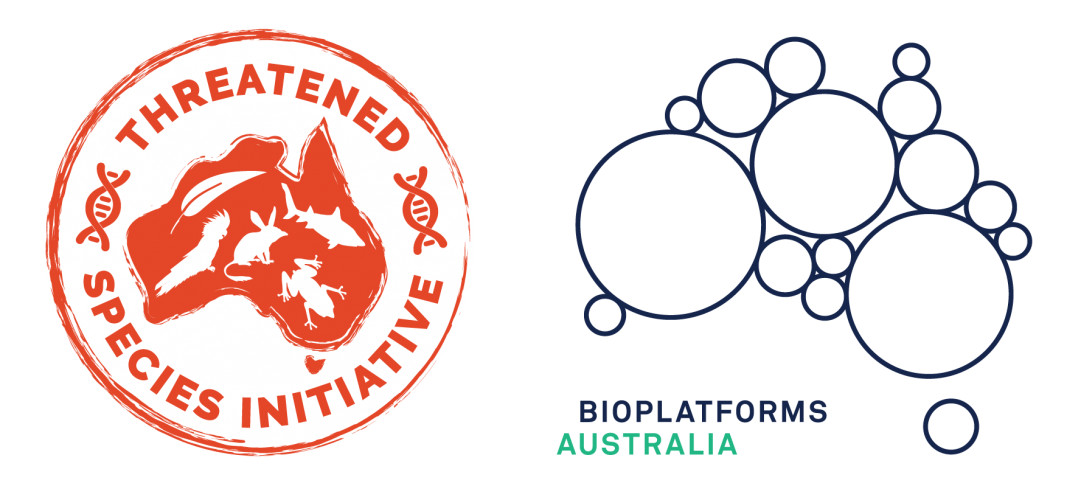Threatened Species Initiative Communications Policy (v1.0 June 2020)
The Threatened Species Initiative has a strong interest in seeing that the data and capability produced by the Initiative is actively communicated to and used by the scientific and wider communities. All users of the data and capability produced through the initiative are expected to exhibit professional courtesy and utilise the data with the highest scientific integrity. When a substantial proportion of the data has been provided through the research activities of others, Bioplatforms strongly encourages investigators to discuss details and expectations of the project, as well as issues of authorship and acknowledgement on publications, prior to the start of the study.
1. General request for all Communications
All communications (scientific or general publications and presentations) that arise from the Threatened Species Initiative consortium’s work will appropriately acknowledge the input of all relevant contributors. The publications should specify the collaborative nature of the project, and authorship is expected to include all those contributing significantly to the work (see sections below).
Add the following text to the acknowledgements for general consortium recognition:
“We would like to acknowledge the contribution of Threatened Species Initiative[1] consortium in the generation of data used in this publication. The Threatened Species Initiative is supported by funding from Bioplatforms Australia through the Australian Government National Collaborative Research Infrastructure Strategy (NCRIS), in partnership with the University of Sydney, Australian Government Department of Environment and Energy, WA Department of Biodiversity, Conservation & Attractions, Amazon Web Services, NSW Saving Our Species, Australian Wildlife Conservancy and the Zoo and Aquarium Association.
If relevant, also credit other organisations involved in collection of the particular data stream (as listed in ‘credit’ in the metadata record). The citation in a list of references is: Threatened Species Initiative consortium [year-of-data-download], [full metadata title], [data-access-URL], accessed [date-of-access].
2. Use of data by the Consortium
The Consortium reserves the right to conduct ‘global analyses’ across these genomics reference datasets and publish the results in the scientific literature, provided this is done in a timely fashion. The Consortium Data Policy[2] outlines the data sharing expectations and responsibilities.
3. Use of data by investigators within or outside of the Consortium
Users of Consortium data, whether members of the Consortium[3] or not, should be aware of the publication status of the data they use and treat them accordingly. For example, all investigators including data from other Consortium members should discuss use with the sample producer(s) before using unpublished data in their individual publications (see guidelines below).
Investigators outside of the Consortium are free to use data generated by the initiative, but are asked to follow the guidelines developed at the Bermuda[4] and Fort Lauderdale[5] agreements and the more recent Toronto Statement[6], which provide guidelines for scientific data sharing. Specifically, data users should cite the source of the data and should acknowledge the sample producers and the funding partners (see section 1).
In addition, the data users are asked to recognise the interests of the sample producers in publishing reports on the generation and analysis of their data. Datasets from the Threatened Species Initiative may be released to public databases as pre-publication data and remain unpublished until they appear in peer-reviewed publications. Outside investigators who perform an in-depth analysis of data and are interested in publishing a report before the sample producers do so should discuss their results with the sample producer(s) and are encouraged to establish collaborations.
The following guideline may be used for acknowledgement and co-authorship, but specific details should be worked out between parties beforehand. Principal Investigators may wish to consider the proportion of data being used as a result of another researcher’s research activities.
As a guideline, in addition to the acknowledgement of the Threatened Species Initiative:
- Small and complementing dataset used: acknowledgement of the sample producer(s) optional
- Significant but disconnected data used (from many different sample producers): Consortium and sample producer(s) should be contacted for discussion, and receive acknowledgement
- sample producer(s) can naturally decline]
The Threatened Species Initiative Project Manager and/or Scientific Lead can also facilitate communication with sample producer(s).
4. Reporting of communications
Copies of communications are to be sent to the project manager (srichmond@bioplatforms.com) for collection and circulated to the Consortium as appropriate.
For further information contact
Dr Carolyn Hogg – Scientific Lead
Sarah Richmond – Project Manager
[1] https://threatenedspeciesinitiative.com
[2] https://threatenedspeciesinitiative.com/threatened-species-initiative-data-policy-v1-0-june-2020/
[3] A consortium member is someone who has a contributed meaningfully to the science and/or management of the initiative, such as through active involvement in project development, working groups and panels, or contribution of samples.
[4] http://www.ornl.gov/sci/techresources/Human_Genome/research/bermuda.shtml
[5] https://www.genome.gov/Pages/Research/WellcomeReport0303.pdf
